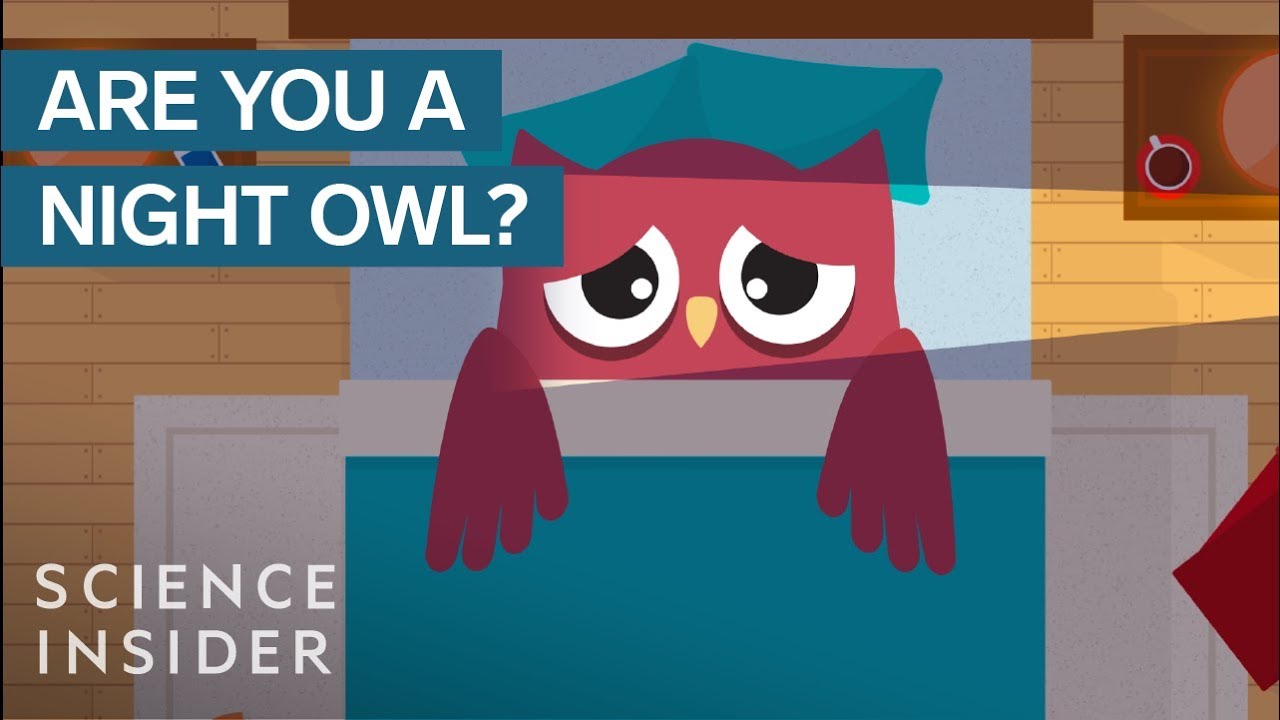What Happens When A Night Owl Wakes Up Early
Unleash Your Creative Genius with MuseMind: Your AI-Powered Content Creation Copilot. Try now! 🚀
Sleep, that elusive and enigmatic act, is often shrouded in mystery. We are bombarded with countless tips and advice on how to improve our sleep, from going to bed at a consistent time to avoiding digital screens before bedtime. But what if I told you that it may not be entirely your fault if you're struggling to get a good night's sleep? Let's delve into the fascinating world of circadian rhythms and unravel the complexities behind our sleep patterns.
The Circadian Rhythm: The Internal Timekeeper
Deep within the core of nearly every living organism on Earth resides a clock known as the circadian rhythm. This internal timekeeper guides not only our sleep cycles but also plays a crucial role in synchronizing the functions of our primary organs, such as the brain, heart, and lungs. Nestled within the hypothalamus, a region in our brain, this remarkable mechanism ensures that everything within our body works in harmony.
However, here's the intriguing part – not everyone's circadian rhythm is the same. Some individuals, commonly referred to as night owls, tend to feel tired later in the evening compared to early birds. This nocturnal preference is often attributed to the production of higher levels of melatonin, the sleep hormone, later at night. While this was never an issue throughout most of human history, societal norms have transformed it into a modern-day dilemma.
Social Jetlag: The Perils of Misaligned Rhythms
Imagine experiencing jetlag after a long plane journey, but instead of vanishing after a few days, it lingers incessantly. Welcome to the world of social jetlag. With the majority of Americans adhering to schedules that fall between 6 am and 6 pm, nearly a third of the population identifies as night owls. Unfortunately, this misalignment between their natural rhythm and societal expectations takes a toll on their well-being.
Even if night owls manage to obtain the recommended amount of sleep, disrupting their circadian rhythm comes with consequences. Researchers have discovered a concerning correlation between the degree of rhythm disruption and the risk of obesity. For every hour that our internal clock is out of sync, the likelihood of obesity increases by a staggering 33%. Such a connection underscores the importance of nurturing our circadian rhythm.
Moreover, misaligned rhythms may not only impact our physical health but also our mental well-being. Individuals with significant deviations in their circadian rhythms reported more severe symptoms of depression, as revealed by a recent study. These findings emphasize the intricate relationship between our internal clock and our overall emotional state.
The Power of Light: Resetting the Clock
The good news amidst this enigma is that our circadian rhythm is not set in stone. Light, as it turns out, plays a pivotal role in triggering and resetting our internal clock. To ensure a smoother morning experience, exposing yourself to natural sunlight upon waking is ideal. If that is not feasible, ensure that your living space is well-lit to mimic the effects of daylight.
By acknowledging the impact of light on our sleep-wake cycle, we can begin to harness the power of our surroundings in optimizing our sleep patterns. Small adjustments, such as embracing the morning sun or creating a well-lit environment, can make a remarkable difference in our overall well-being.
Embracing the Marvels of Our Circadian Rhythm
As we navigate the complexities of our modern lives, it is crucial to recognize the significance of our circadian rhythm. By honoring our body's innate clock and aligning it with our day-to-day activities, we can unlock a multitude of benefits, from improved physical health to enhanced mental well-being.
Let us embark on this journey of understanding our extraordinary circadian rhythm. Together, we can navigate the vast ocean of sleep, ensuring that our internal clocks tick in perfect harmony with the world around us.
Now, dear readers, I'd love to hear your thoughts. Share your burning questions and curiosities about the human body in the comments below. Remember, knowledge is power, and together, we can unravel the mysteries that lie within us. Thank you for accompanying me on this insightful exploration.
